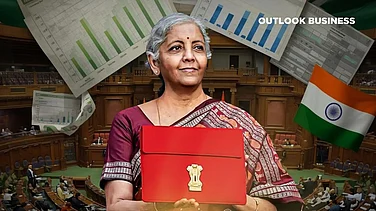AI is the next frontier and will determine the future success stories of countries worldwide. As a proud Indian deep-tech AI product company, we envision a world where Indian deep-tech firms compete on an equal footing with global companies, often heavily subsidized by their local governments. Nearly five years ago, we observed a neighboring country’s company receiving over $800 million in subsidies and funding from central and local governments based solely on their AI intellectual properties.
This highlights that countries globally recognise AI’s potential to shape economic power over the next decade and are investing heavily in subsidies to seize this massive opportunity. Although, as a nation, we may have started late, we have not missed the chance to capitalise on this opportunity, which aligns with our country’s strengths. It's encouraging to see the Cabinet approve the India AI Mission with a budget allocation of Rs 10,300 crore, a mission to which Ananth Nagaraj, co-founder and CTO of Gnani.ai, contributed significantly during its drafting.
India’s greatest strength in AI lies in its talent pool, but it is crucial not only to allocate more funds but also to modernize the AI Future Skills program to ensure the right training is provided. The Indian IT services industry was due not only to academic institutions but also to private players such as NIIT, which enhanced technical skills outside the academic curriculum. The AI Skills Program needs to be massive, with a public-private partnership incorporating practical training for students and users of AI services, including government entities. At Gnani.ai, we have benefited from the local ecosystem through programs like the Nasscom deep tech program, but these largely rely on support from successful entrepreneurs and experts. There is a need to establish a system that rewards mentors and advisors who successfully guide start-ups.
Recently, Sam Altman made the interesting statement that “Compute will be the currency of the future.” While it is uncertain if compute power will become the most precious commodity, the recent issues with GPU availability, especially for start-ups, suggest that this is a serious problem needing urgent attention. The India AI mission proposed excellent ideas, and the recent government announcement regarding the availability of Nvidia GPUs for India is a positive step in ensuring this precious resource is accessible to our start-ups. However, we still need to subsidise access to these expensive GPUs and find solutions to allocate this valuable resource so that deep-tech companies in India can use it at a lower cost.
Also, funding for deep tech start-ups is often a challenge, and the existing private venture capital ecosystem in India has historically been hesitant to invest in such ventures due to their longer gestation periods. Although things are slowly changing, it is still disheartening to see private equity players offer minimal funds to deep-tech start-ups aiming to change the world. The government needs to increase funding in this space and implement stringent controls to ensure that the best deep-tech companies receive support. Strengthening indigenous AI is also crucial for national security, particularly in voice, text, image, and video AI, as well as technologies like drones. Choosing the right AI products is challenging. The government urgently needs to establish independent AI testing centers with top-notch AI capabilities to ensure that the correct AI technologies are chosen by the defense forces and other government entities.
There are also questions about when an AI start-up of OpenAI’s scale will emerge in India. Firstly, LLMs are not the be-all and end-all of AI innovation. Secondly, creating an ecosystem that fosters such successful companies will not happen overnight, but having these discussions is valuable. Once we identify a problem as a country, we are often capable of solving it. In short, this is an appeal to the finance minister to view AI as a one-time opportunity for the nation and to allocate funds liberally for compute AI skills training and funding beyond what was planned as part of the AI Mission. This will help make India a leading AI country, not just for AI services but for deep-tech AI products that change the world.






.jpg?w=801&auto=format%2Ccompress&fit=max&format=webp&dpr=1.0)















